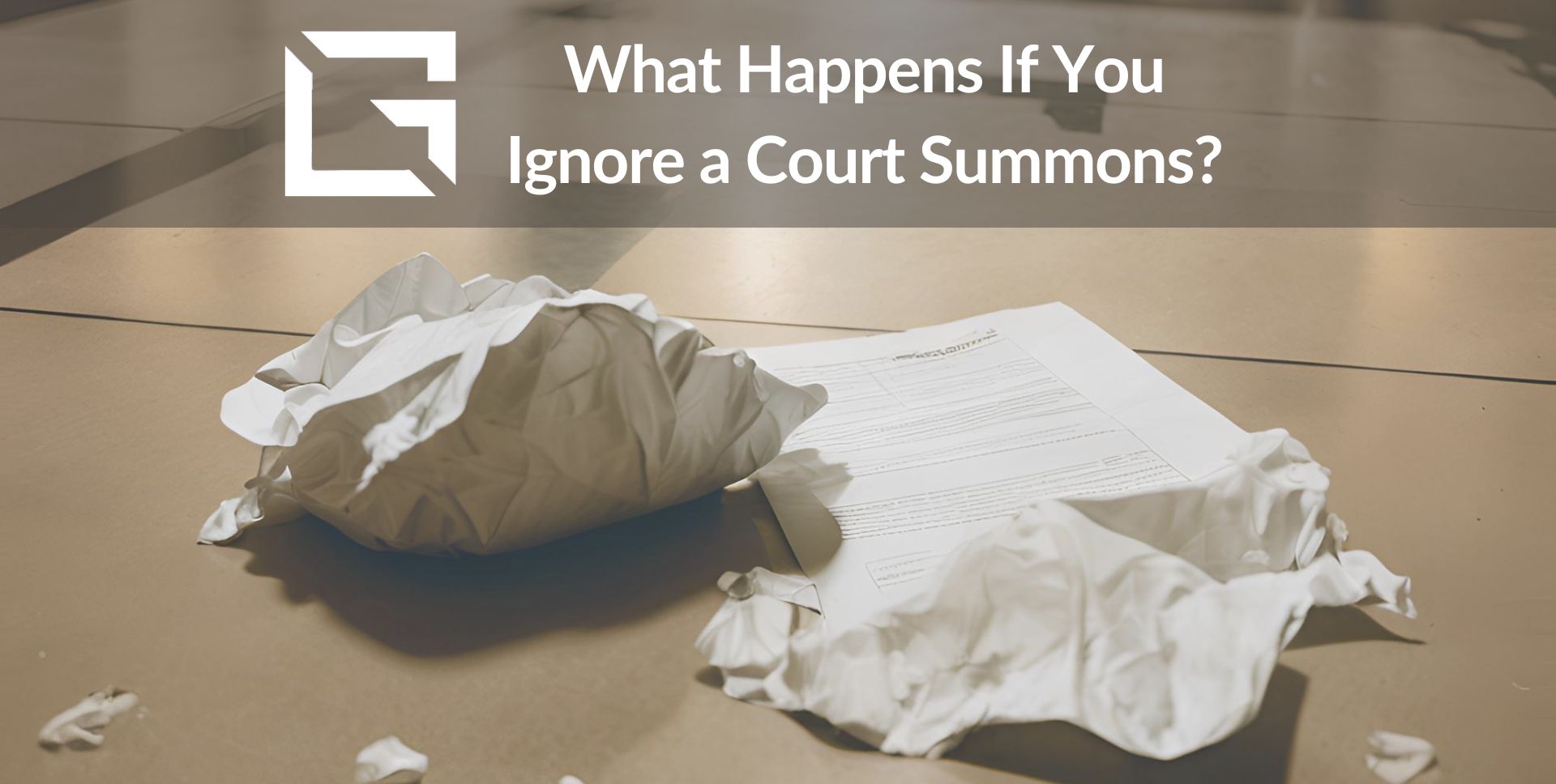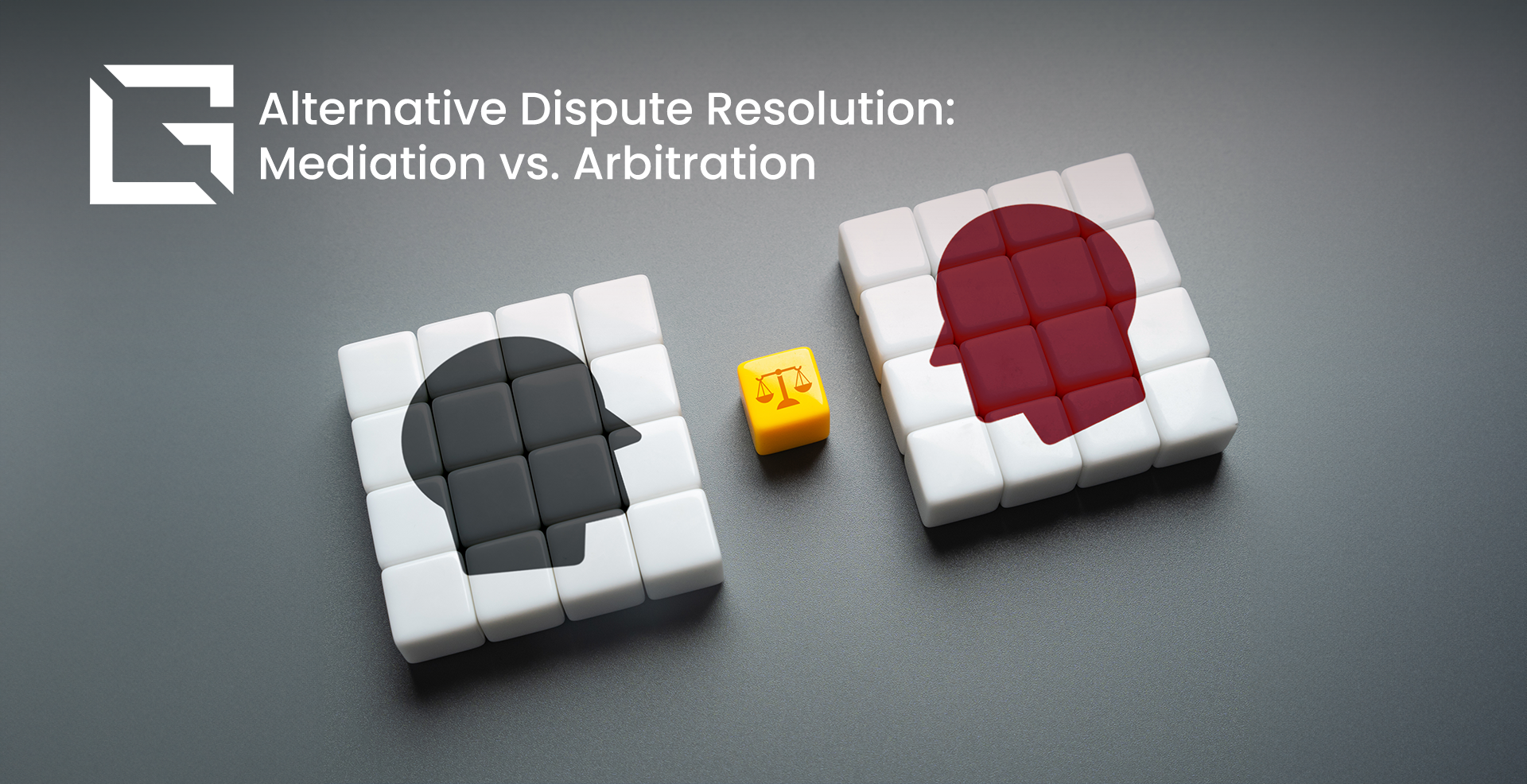Let’s start with a little story. Picture Rebecca, a mother of two who works long hours managing her small bakery. One afternoon, she shuffles through a stack of mail and finds a document labeled “Summons.” The language looks formal and intimidating, mentioning court dates and legal actions. Uncertain about what it means, Rebecca tucks it away in a drawer, thinking, “I’ll deal with it later. I’m too busy right now.” Weeks pass, and she forgets all about it. Then, out of the blue, her bank account is frozen, and a notice arrives indicating a default judgment has been entered against her. She’s blindsided. Had she responded to the summons, she could have disputed the allegations or arranged a payment plan before matters spiraled out of control.
Rebecca’s situation isn’t unique. Many people feel that if they ignore or discard a court summons, the problem will somehow disappear. In reality, ignoring a summons can trigger a cascade of legal consequences—from default judgments and wage garnishments to property liens and even arrest warrants in certain situations. Today, we want to break down what happens if you choose to ignore a summons, why it’s critical to respond, and how Gibb Law Firm can help if you’re facing this situation.
What Are Court Summons?
A court summons is a formal notification that a legal action has been filed against you or that you’re being called to appear in court for a specific matter. Summonses come in different forms and address a variety of legal issues, including:
- Civil Lawsuits: Perhaps you’re being sued by a creditor for an unpaid debt, a business partner for breach of contract, or a neighbor over a property dispute. A civil summons notifies you that legal action has been taken against you and outlines the basic claims being made.
- Debt Collection Cases: If you owe money—on credit cards, medical bills, or personal loans—you might receive a summons from a collection agency or a law firm representing your creditor.
- Criminal Cases: In certain jurisdictions, you might receive a summons instead of an arrest warrant if you’re being charged with a minor criminal offense. This document requires you to appear in court on a certain date. Failing to appear can lead to more severe penalties, including a bench warrant for your arrest.
- Subpoenas: This isn’t the same as a summons, but it functions similarly in that it compels you to either appear in court as a witness or produce documents relevant to a case.
Each type of summons has different implications, but they all share one critical element: a legally binding requirement that you respond by the specified deadline or appear in court on the designated date.
The Legal Obligation to Respond
When you receive a court summons, you’re being informed that the legal system needs your participation. Whether it’s a civil lawsuit or a criminal case, the summons isn’t a polite request—it’s an official directive. And official directives from the court are mandatory, not optional.
For civil cases, the summons usually comes attached to a complaint, which details what you’re being sued for. You’re typically given a window of time—often 20 or 30 days, though it can vary depending on your jurisdiction—to file your response, known as an “Answer.” In criminal cases, the summons will specify the date and time you must appear before the judge. Either way, ignoring the summons or failing to show up can lead to serious repercussions.
Common Consequences of Ignoring a Court Summons
- Default Judgment (Civil Cases)
Failing to respond to a civil summons paves the way for the other party—the plaintiff—to request a default judgment. Essentially, this means that the court awards the plaintiff everything they asked for in their complaint simply because you didn’t show up or file a response to dispute it. Default judgments can lead to:- Wage Garnishments: A portion of your paycheck can be automatically deducted to satisfy the judgment.
- Bank Account Levies: Creditors can freeze your bank accounts and seize funds to pay the debt.
- Property Liens: Your real estate or personal property might have a lien placed on it, preventing you from selling or refinancing until the debt is paid.
- Wage Garnishments: A portion of your paycheck can be automatically deducted to satisfy the judgment.
- Bench Warrant (Criminal Cases)
If the summons is for a criminal matter and you don’t appear in court, the judge may issue a bench warrant for your arrest. This means any routine traffic stop or background check could land you in jail until you’re able to address the original charge. - Fines and Penalties
Even in non-criminal proceedings—like traffic or municipal violations—ignoring a summons can lead to increased fines, late fees, or additional penalties. - Contempt of Court
If you were subpoenaed to provide testimony or produce certain documents and you ignore that subpoena, you risk being held in contempt of court. This can lead to monetary sanctions or even jail time, depending on the severity of your noncompliance. - Damage to Credit Score and Financial Standing
Judgments against you can show up on your credit report, making it harder to secure loans, rent apartments, or pass routine credit checks.
Real-Life Example: Debt Collection Summons
Let’s imagine you have an old credit card debt of $3,000. You fell behind on payments during a rough patch—maybe you lost your job or had unexpected medical bills. One day, you receive a summons notifying you that the credit card company is taking legal action to collect the outstanding balance. If you ignore that summons, the court can grant a default judgment to the creditor. You could find yourself dealing with wage garnishments or even a bank account levy that can disrupt your financial stability and personal life. Plus, the creditor may tack on attorney’s fees and other legal costs to the judgment, meaning you could owe far more than the original $3,000.
Steps to Take When You Receive a Summons
- Verify Its Legitimacy
With the rise of scams, it’s important to confirm that the summons is valid. Look for key indicators—court stamps, docket numbers, and an attorney’s contact information. You can also call the clerk of the court in the county where the summons was issued to ensure it’s on record. - Read Through the Document Carefully
It sounds obvious, but many people only glance at a summons and then panic. Spend time reading the document in full. Note the deadline for your response or court appearance, and mark it on your calendar immediately. - Consult an Attorney
Even if you think the case is straightforward, an attorney can help you understand your options, timelines, and defenses. Having a professional on your side can make a huge difference in the outcome—especially if there’s a chance to negotiate a settlement or dispute the claims entirely. - Gather Relevant Documents
If you’re being sued over a contract, find that contract and any correspondence. If it’s a debt collection issue, locate your billing statements, payment records, and any communication you’ve had with the creditor. Organized documentation can strengthen your defense. - File a Response or Make a Court Appearance
Depending on the type of summons, you’ll either file an “Answer” to the lawsuit or physically appear in court at a specified time. Filing an Answer typically involves refuting allegations, stating any defenses you have, or even making counterclaims if applicable. Missing the filing deadline can be a big mistake, as you risk default judgment. - Stay in Communication with the Court and Opposing Party
You or your attorney will likely need to exchange information with the opposing party. Keep track of all deadlines and court orders. Prompt and proactive communication signals to the court that you’re taking the matter seriously.
What if You’ve Already Missed the Deadline?
Sometimes, life gets in the way, or you simply overlook the summons in the shuffle of daily life. If you’ve already missed your deadline:
- Act Quickly
Contact an attorney right away. You may still have options to file a motion to set aside the default judgment or reopen the case. The faster you act, the better your chances of minimizing the fallout. - Explain Your Reason
Courts can be understanding if you have a valid reason for missing the deadline, such as not receiving the summons in time or facing an emergency. Your attorney can help you file the appropriate documents to request more time or to challenge a default judgment. - Negotiate with the Opposing Party
In some civil matters, even if a default judgment has been entered, you can still reach out to the plaintiff (or their attorney) to negotiate a settlement or payment arrangement. Many creditors or opposing parties are willing to work with you rather than spend more money on legal actions that might not result in full recovery.
Why You Shouldn’t Go It Alone
The legal process can be incredibly intricate, with procedural rules and technical requirements that can trip you up if you’re unfamiliar with them. Missing a single deadline or filing the wrong document can severely harm your case. That’s why seeking professional legal assistance can be pivotal.
- Tailored Legal Advice: A lawyer can pinpoint defenses or legal strategies unique to your situation, whether you’re dealing with a lawsuit, a subpoena, or a court order.
- Proper Filing: Lawyers ensure that all pleadings, motions, and other paperwork meet the court’s requirements and are filed on time.
- Negotiation Skills: Many cases settle out of court. An attorney knows how to negotiate from a position of strength, potentially saving you time, money, and stress.
- Court Representation: If your case goes to trial, you’ll want someone by your side who knows the ins and outs of courtroom procedure.
How Gibb Law Firm Can Help
At Gibb Law Firm, we understand that dealing with legal documents and proceedings can feel like walking through a minefield. Our goal is to guide you safely to the other side. Here’s what we bring to the table:
- Personalized Attention: We take the time to understand every facet of your situation, ensuring that we craft a legal strategy tailored to your needs.
- Prompt Action: Time is of the essence when it comes to responding to a summons. Our team is dedicated to moving quickly so you don’t lose your rights or end up with a default judgment.
- Thorough Representation: Whether it’s negotiating with opposing counsel or representing you in court, we’re in your corner every step of the way.
- Client Education: We believe in empowering our clients. That’s why we walk you through each step of the legal process, explaining the potential outcomes and options at every juncture.
If you’ve received a summons—or worse, if you’ve ignored one—don’t wait another minute. Reach out to us at Gibb Law Firm, and let’s talk about how we can help you get back on track.
Practical Guidance for Moving Forward
- Stay Organized: Keep copies of all correspondence, court documents, and notes from any phone calls. Consider setting up a dedicated folder in your email and a physical file.
- Be Proactive: Ignoring problems never makes them go away. Face the issue head-on by seeking legal counsel and responding appropriately.
- Communication Is Key: If you’re involved in a civil case, consider reaching out to the other side early to explore settlement options. For criminal matters, following your attorney’s advice to the letter can greatly influence the outcome of your case.
- Learn from the Experience: If you ever receive another summons—or any legal notice—remember Rebecca’s story. A prompt response can save you a lot of time, money, and anxiety.
When You’re Unsure About the Next Steps
Maybe you haven’t even opened the envelope yet because you’re too afraid of what you’ll find inside. Maybe you’re worried about facing your financial reality or dealing with a dispute that feels too complicated to manage. That’s completely understandable; legal battles can be emotionally draining. But letting uncertainty paralyze you can be the worst move of all. Take that step now: open the document, read it carefully, and then call a professional like Gibb Law Firm.
A Quick Recap
- Ignoring a summons is risky: It can result in a default judgment, wage garnishment, fines, or worse.
- Different summonses, different stakes: Civil, criminal, and debt-related summonses carry unique obligations and potential penalties.
- Respond on time: Deadlines are critical. Missing them severely limits your options.
- Seek legal help: Whether you’re dealing with debt collection, a criminal charge, or a complex civil suit, professional guidance can dramatically alter the outcome.
- You can still act if you’re late: Courts sometimes allow you to set aside a default judgment, but you need to act promptly and have a reasonable justification.
- Stay engaged and informed: Keep up with all correspondence, court dates, and follow legal advice to protect your rights and interests.
Final Thoughts
Receiving a summons is no one’s idea of a good time, but it isn’t the end of the world—unless you ignore it. Whether you’re facing a civil lawsuit, a debt collection case, or a criminal matter, your best move is to address the summons promptly, gather your documents, and consult an attorney. By responding promptly, you keep your legal options wide open. You may be able to contest the claims, negotiate a settlement, or, in the worst-case scenario, at least minimize the financial and legal impact.
Ready to Talk?
If you or someone you care about has recently received a summons, don’t let fear or procrastination stand in the way. Reach out to Gibb Law Firm today. We’re here to listen, advise, and advocate for you every step of the way. Remember: the sooner we get started, the more tools we have to protect your rights, your finances, and your peace of mind.
So, be like Rebecca if she had a chance to do things differently—read that summons, understand what’s being asked of you, and take swift, proactive steps. After all, knowledge is power, and with the right legal team by your side, you’ll be in the best possible position to resolve the matter and move on with your life.
Conclusion
At Gibb Law Firm, we know that legal disputes can be complex, stressful, and disruptive to your life or business. Our experienced litigation attorneys are committed to protecting your rights and advocating for the best possible outcome in your case. Whether you’re facing a contract dispute, business conflict, property issue, or another legal challenge, we provide strategic guidance and strong representation every step of the way. Explore the General Litigation section of our FAQ page or contact our team for a consultation—because having the right legal support can make all the difference.
Disclaimer: This article is for informational purposes only and does not constitute legal advice. Please contact us to discuss the specifics of your situation.



